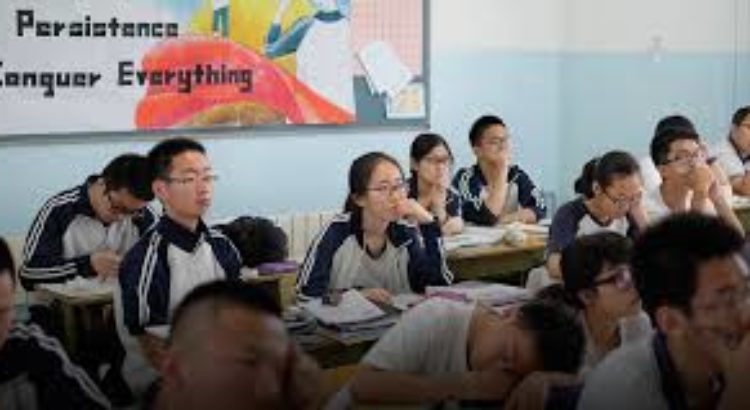Asia/ China/ 24.06.2019/ By: Ni Dandan/ Fuente: www.sixthtone.com.
China wants more high schools to offer the elective courses known as “zouban” — literally “roaming classes” — in order to better meet students’ diverse developmental needs and interests, an official with the country’s top education authority said at a press conference Thursday.
The conference came a day after the State Council — China’s Cabinet — issued sweeping new guidelines on secondary education reform. According to a spokesperson for the Ministry of Education, the document is the first of its kind to be released since the start of the 21st century.
“Taking into account talent cultivation rules, university department admissions requirements, and students’ interests and strengths, as well as the specific conditions at each school, zouban systems should be implemented in an orderly fashion,” Lü Yugang, director of the Ministry of Education’s Department of Basic Education, said at the conference.
Local school districts around China have experimented with zouban electives to increase student choice for decades, but the system has become more widespread in recent years as provinces and municipalities continue to add elective sections to their college entrance examinations. The new guidelines represent the first time the central government has explicitly endorsed zouban and encouraged local authorities to implement the model.
In his remarks at the conference, Jia Wei, deputy director of Shanghai’s Municipal Education Commission, framed the move as a change from the current exam-oriented model of education to a more comprehensive approach. “The goal of high school studies will no longer be simply getting into a university, but also figuring out students’ interests in life and targets for their future career,” he said.
Currently, zouban implementation is carried out at the local level, meaning the systems in place and degree of choice they offer can vary. Shanghai schools require students to choose three elective zouban from a list of six potential options, with each subject corresponding to an elective section on the municipality’s college entrance exam.
In addition to advancing the zouban system, the new reform guidelines also call on schools to explore more “interactive, inspirational, and experiential teaching methods,” and state that teaching management should be optimized and student workloads eased by reducing the frequency of exams and banning schools from forcing students to take extracurricular classes.
Cao Bingsheng, a teacher at Nantong Normal College in eastern China, says he’s pessimistic as to whether the new guidelines will have the desired effect, especially if schools continue to be graded primarily on test scores.
“It’s highly difficult to ban extra classes as long as university admissions rates are still used to evaluate the performance of (secondary) education authorities,” Cao told Sixth Tone.
Education officials also used Thursday’s press conference to announce that work on new high school textbooks is almost complete. In late 2017, the Ministry of Education issued guidelines for revising the country’s textbooks, which included adding more content related to socialist core values and both traditional Chinese and “revolutionary” culture.
Source of the notice: https://www.sixthtone.com/news/1004162/chinas-education-authority-calls-for-more-electives%2C-choice#







 Users Today : 40
Users Today : 40 Total Users : 35459946
Total Users : 35459946 Views Today : 46
Views Today : 46 Total views : 3418511
Total views : 3418511